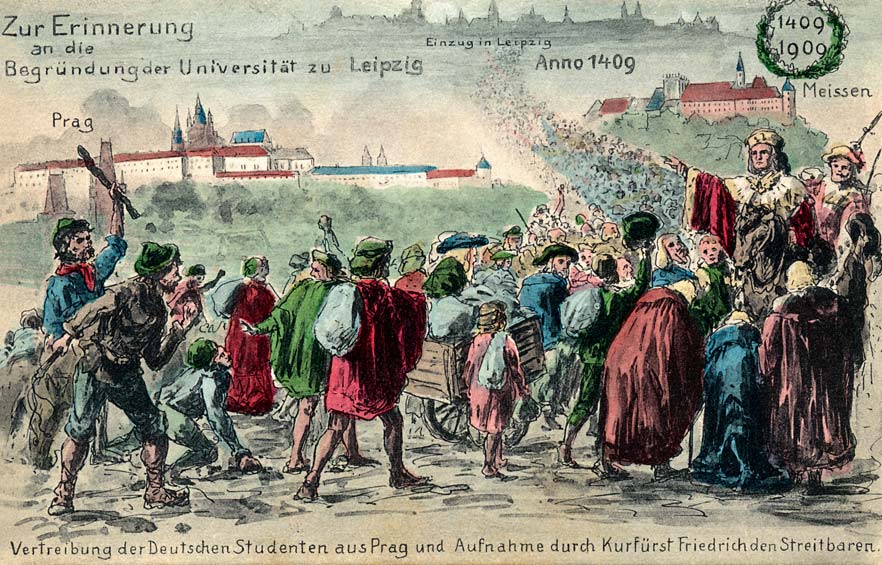Leipzig University
Team WissensSpuren
For six centuries Leipzig University has enriched the cultural and intellectual live of the city. Presently, it strives to take a leading role anong German’s top research universities.
History
Painting to commemorate the 500th anniversary of the university. © Universitätsarchiv Leipzig
The Alma mater Lipsiensis was founded in 1409 on initiative of magisters and scholars from Prague, and in 1519 the Leipzig Debate marked the beginning schism between Rome and the Lutherans.
Donations during the reformation turned Leipzig University into one of the riches universities in the Holy Roman Empire.
The very first institutes for a fair number of scientific disciplines were set up in Leipzig, and the important role of its research is reflected in its association with 19 Nobel laureates.
Education and Research
As a comprehensive university, Leipzig University offers an extensive range of research across the life sciences, humanities, social sciences, and natural sciences. It fosters interdisciplinary basic and applied research and has emerged as a key partner for knowledge and technology transfer at regional, national, and international levels. The university excels in areas such as global interaction, biomedicine, intelligent materials, biotechnology, mathematical sciences, and biodiversity.
With over 150 degree programs, Leipzig University boasts a distinctive academic diversity in Saxony. It is increasingly recognized as a leading center for teacher education in the region. Its academic offerings are characterized by the high mobility rate of students, numerous international connections, and a globally integrated teaching approach. The International Physics Study Program stands as the oldest English-language program in Germany. Through two EU-funded Erasmus Mundus study programs, three Erasmus Mundus mobility networks, and 32 additional international programs—many of which are taught in English—the university continues to attract future students and emerging researchers. Many of these individuals remain in the region, pursuing careers with technology companies and startups.
Outreach
The University Library,
the University Archive,
the Art Collections, and
the German Literature Institue
are renowned University institutions that contribute substantially to the city’s cultural life.
In addition,
the Botanical Garden,
its three museums, and
the teaching collections
attract numerous visitors;
and last but not least,
each year thousands of visitors participate in the Seniorenstudium,
the KinderUni, and
the studium universale.